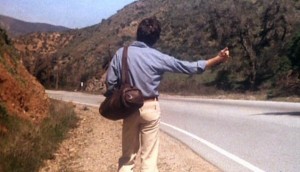As writers, our imaginations often run wild. We can imagine everything from a chaste kiss to passionate lovemaking. We can envision acts of terrorism as easily as we dream up acts of heroism. The only thing that limits an imagination is one’s own restraint.
Writers often walk the edge of what’s socially acceptable. Sometimes we delve into the shadows and make readers uncomfortable. And when we dance with the darker side, we run the risk of letting those we love see a part of ourselves we don’t like to admit we have — like graphic sex scenes or descriptions of unspeakable horror.
This week, we’re asking the writers in the Cafe for their advice. How do writers separate what they write from what people think about the writer?
Some write whatever they want without fear of reprisals. Others adopt pseudonyms and hide behind anonymity. And still others resort to self-censorship to keep their friends and family from freaking out.
How about you? When you’re writing, do you censor yourself to keep your parents from dropping your name from the family will? Or do you write anything you want and let the chips fall where they may?
Until next week,
The Cafe Management


